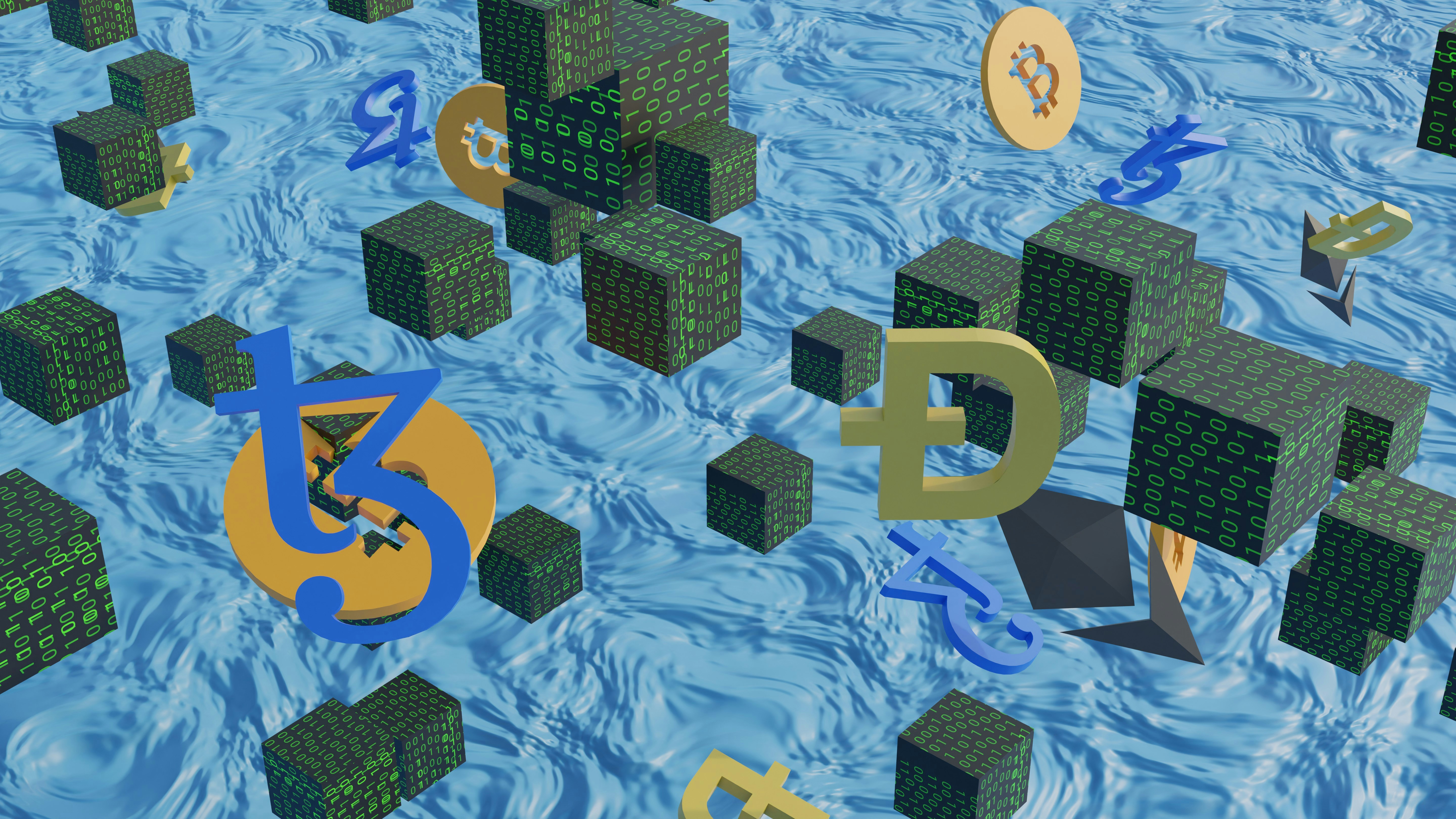
Understanding Decentralized Finance (DeFi)
Decentralized Finance, commonly referred to as DeFi, represents a transformative approach to financial systems, harnessing the power of blockchain technology to create an open, permissionless, and transparent monetary ecosystem. The fundamental distinction between DeFi and traditional financial systems lies in the elimination of intermediaries such as banks and brokers, allowing direct peer-to-peer transactions. This peer-to-peer framework enhances accessibility, democratizing financial services for users globally, particularly those who have been historically underserved.
The core principles of decentralized finance revolve around transparency, security, and inclusivity. Transactions conducted within the DeFi framework are recorded on public ledgers, ensuring transparency and accountability. This feature significantly reduces the potential for manipulative practices inherent in traditional finance, allowing users to have greater trust in digital transactions. Moreover, the utilization of cryptographic principles secures transactions, safeguarding users’ assets against unauthorized access or fraud.
Among the pivotal components of DeFi are smart contracts, decentralized applications (dApps), and cryptocurrencies. Smart contracts are self-executing agreements embedded within the blockchain, eliminating the need for third-party oversight. These programmable contracts function automatically when predefined conditions are met, fostering trust and efficiency in transactions. dApps leverage these smart contracts to create a range of financial services, including lending, borrowing, and trading, all without intermediary involvement.
Furthermore, cryptocurrencies serve as the fundamental currency of the DeFi framework, enabling users to engage in various financial activities seamlessly. This unique combination of blockchain technology, smart contracts, and digital currencies underpins the entire decentralized finance ecosystem, offering innovative solutions that challenge traditional financial paradigms and promote a more inclusive economic landscape.
Key Components and Technologies Behind DeFi
Decentralized finance, commonly abbreviated as DeFi, fundamentally transforms the traditional financial ecosystem through various innovative technologies. At its core lies the blockchain, a distributed ledger technology that ensures transparency, security, and immutability for financial transactions. Ethereum is one of the most prevalent platforms used in DeFi due to its ability to support smart contracts—self-executing contracts with the agreement terms directly written into code.
Smart contracts play an essential role in enabling peer-to-peer transactions without needing intermediaries, such as banks or brokers. These contracts automatically enforce the terms of an agreement once the necessary conditions are met, thus reducing the risk of human error and fraud. This automation streamlines processes such as lending, borrowing, and trading, making them more efficient and accessible to a broader audience.
Another critical element in the DeFi ecosystem is decentralized exchanges (DEXs), which allow users to trade cryptocurrencies directly with one another. Unlike traditional exchanges, DEXs operate without a central authority, relying instead on smart contracts to facilitate trades. This decentralization eliminates the need for custodial services, granting users full control over their assets and enhancing the overall security of transactions.
While the integration of these technologies has spearheaded the growth of decentralized finance, there are also significant challenges that developers must address. Issues such as scalability, transaction fees, and security vulnerabilities persist as ongoing concerns triggering innovative solutions. As projects continue to emerge and evolve, the DeFi landscape is constantly shaped by both technological advancements and regulatory developments. The synergy between blockchain platforms, smart contracts, and decentralized exchanges heralds a transformative era for finance, paving the way for a more inclusive and efficient financial system.
The Advantages and Risks of DeFi
Decentralized finance (DeFi) has emerged as a transformative alternative to traditional financial systems, offering a unique set of advantages that appeal to a diverse audience. One of the primary benefits of DeFi is its increased accessibility. Unlike conventional banking services that may require customers to meet specific criteria, DeFi platforms typically allow anyone with an internet connection to participate. This democratization of finance opens doors for the unbanked populations around the world, enabling them to access services such as lending, borrowing, and trading without the need for intermediaries.
Another significant advantage lies in the reduction of costs. DeFi eliminates intermediaries such as banks and brokers, which often impose high fees for transactions and services. By utilizing blockchain technology, DeFi can facilitate transactions with minimal costs, allowing users to retain a larger portion of their assets. Furthermore, DeFi solutions can offer innovative earning opportunities, including yield farming and liquidity provision, which add to their attractive nature.
Privacy is yet another aspect where decentralized finance stands out. Traditional financial systems often require extensive personal information, putting users’ data at risk. In contrast, many DeFi platforms emphasize user privacy by allowing permissionless transactions that do not require heavy personal data. This alignment with individuals’ privacy preferences makes DeFi a compelling alternative.
Despite these advantages, there are inherent risks associated with decentralized finance that users must consider. Smart contracts, which underpin DeFi protocols, can contain vulnerabilities that hackers may exploit. Additionally, the market’s volatility poses potential financial risks, as rapid price fluctuations can lead to significant losses. Regulatory uncertainty also looms over the DeFi landscape, as governments worldwide grapple with how to approach this evolving sector. Consequently, the possibility of user error or hacking remains a valid concern, emphasizing the need for caution when engaging with DeFi platforms.
The Future of DeFi: Trends and Predictions
The landscape of decentralized finance (DeFi) is rapidly evolving, paving the way for innovative trends and significant transformations in how financial services are accessed and utilized. One of the most notable trends is the growing integration of DeFi with traditional finance (TradFi). Financial institutions are beginning to recognize the potential of blockchain technology and smart contracts, which facilitate transparent and automated processes. This crossover could lead to hybrid models where DeFi protocols enhance the efficiency and accessibility of traditional banking services, providing users with a broader array of financial products.
Another important trend involves governance tokens, which allow users to participate in decision-making processes within DeFi platforms. These tokens empower individuals to influence the direction of various projects, enabling a more democratic and decentralized ecosystem. As more users gain interest in governance participation, the role of community-led initiatives may foster increased trust and engagement in the DeFi space, potentially leading to enhanced innovation and product development that aligns with user needs.
The impact of regulatory developments cannot be overstated when discussing the future of decentralized finance. As governments and financial watchdogs evolve their regulatory frameworks to address the unique challenges posed by DeFi, there may be both obstacles and opportunities for growth. Clear regulations could pave the way for wider acceptance of decentralized financial systems among mainstream investors, thus driving further adoption and market expansion.
Looking ahead, the DeFi ecosystem is likely to continue transforming with the introduction of novel financial instruments and services. Potential innovations, such as decentralized insurance, advanced lending protocols, and cross-chain DeFi solutions, may disrupt existing financial paradigms even further. As these developments unfold, they promise to reshape the finance landscape, creating a more inclusive and decentralized financial world.


